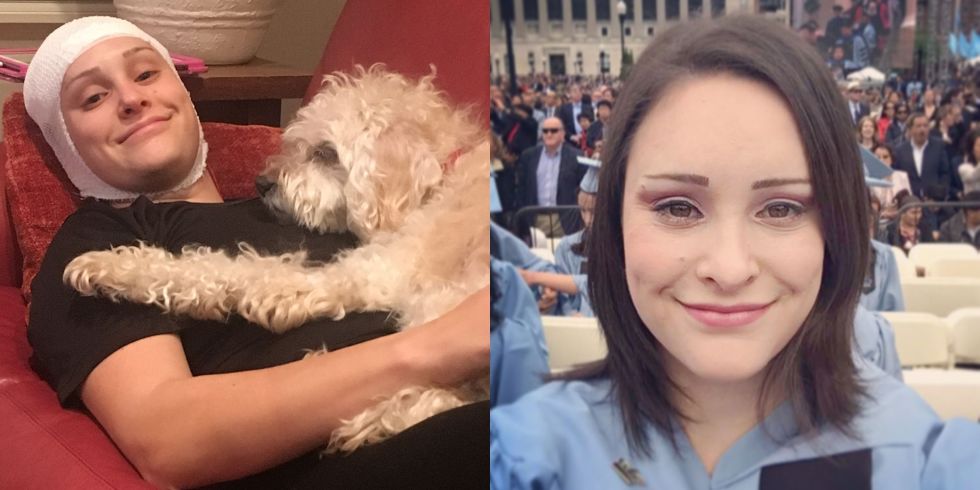Rachel, 27 years old, had been riding horses her whole life. Being an equestrian, she had suffered more than the regular number of concussions an average human being receives for their entire life. Rachel’s concussions took a toll when she was diagnosed with a Traumatic Brain Injury in 2012, Cosmopolitan reports.
Rachel said, “The sport was my life, my passion, and something I was talented at and woke up every day excited about. I'd never considered stopping riding. There have been so many I can't even count them, but there are four pivotal ones that stand out to me.”
Rachel’s first experience with a concussion was in 2009. She was at a college party, playing a tug-of-war with someone she was flirting with. Both of them were holding tightly on the rope. When he let go, Rachel said that she just crashed into a glass table behind her. Although she didn’t feel any pain, she was angry, especially at the boy who did that to her.
A friend of hers later told her that she was bleeding and small pieces of glasses were lodged into the back of head. When she and her friends removed all of the glass pieces, she went back to the party and drank some more.
Rachel said, “The next day, I had a headache like I'd never had before. I had trouble concentrating, keeping my balance, and functioning. I went to the emergency room, and the doctor told me I had a concussion and that time would heal it. I'm pretty sure he told me not to drink and to ‘take it easy.’”
In 2010, when Rachel was having a riding lesson, she hit her head again when she took a sharp turn. Although she was wearing a helmet, she still ended up in the emergency room. These concussions have affected her sight as well. She was driving one day and all of a sudden, the side vision just went blurred.
Rachel said, “There’s still so much to learn. I have one doctor who said I’ll just always be like this. A chiropractor told me he could reverse my symptoms. But it really is not worth it to me to do that. It’s so painful and uncomfortable. It’s gotten better. But my memory, my pain, and my body are not at the point that they were previously.”
Her trips to the ER had become more and more frequent. When doctors ask her if she lost consciousness. She was hesitant to say no, even though that was the truth. Because she knew that she would just be dismissed if she said that she was awake the whole time. However, she admitted that sometimes she would just forget things immediately after remembering them.
Rachel said, “I don’t want anyone’s sympathy. I don’t want to hear, “Oh my gosh, I’m so sorry, that’s awful,” because I know it’s awful! I live with it. I just want people to understand that I try really, really, really hard to seem like everyone else, but I have to be careful all the time.”
“It’s so cliched, but even though you can’t see my illness, it’s very real to me, and it’s a part of my daily life. You can’t dwell on that though. Thinking about how I’ve progressed over the years, it’s good to know [my condition] is not getting worse.
“My best friend has a baby, and being able to pick the baby up and throw her in the air and just be silly and shake my head at her, though it gives me a headache, is so worth it. I’m just going to live with my condition the best way that I can. And I live a really good life. I love life. I’m happy.”
Rachel is now a certified personal trainer for the National Academy of Sports Medicine. She said, “I used to jump rope and do box jumps. I loved dancing and, obviously, horseback riding.
“I used to go for runs but even walking is problematic sometimes. Unless I’m focusing on a set point, it will get me a little nauseous. It’s incredibly frustrating but it forces me to get creative with my workouts.” Rachel’s TBI can still be triggered any time of her day.





